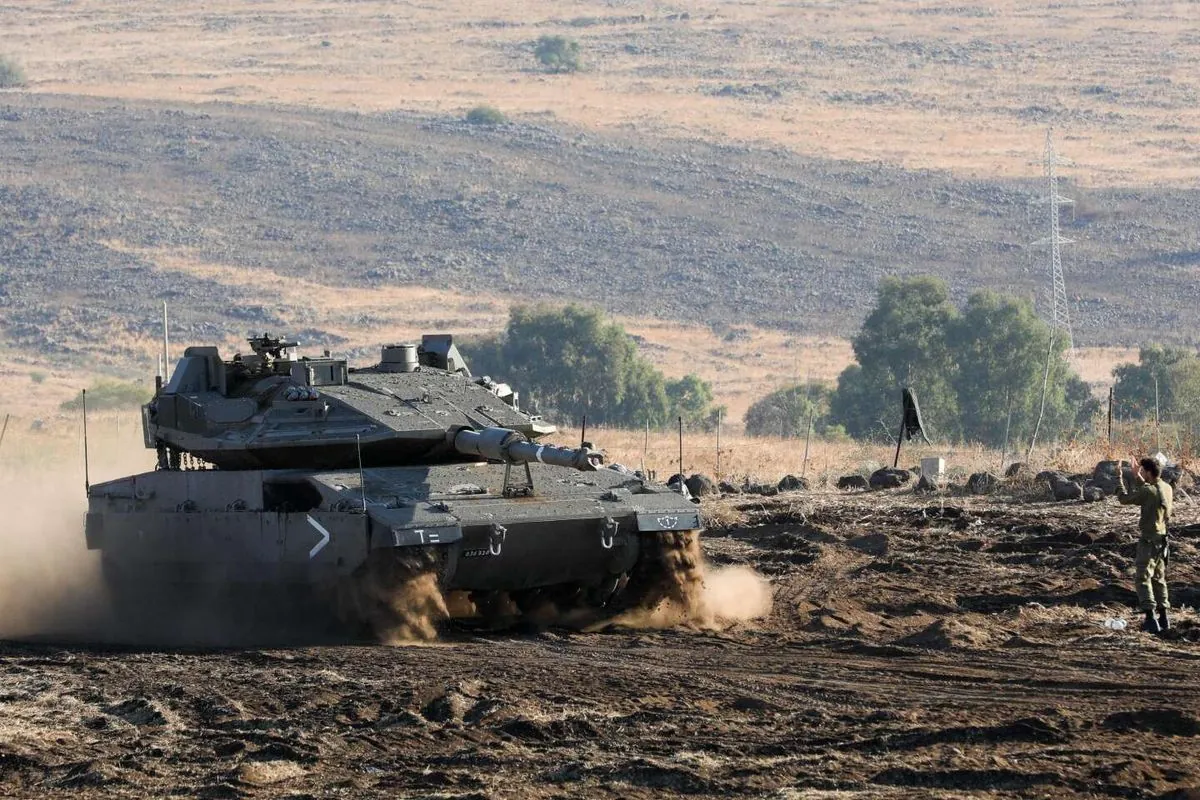Tensions between Israel and Hezbollah have reached a critical point, with Israeli leaders contemplating military action to secure the northern border. The situation has escalated following recent events, including an exploding pager attack on Hezbollah on September 19, 2024.
Benjamin Netanyahu, Israel's Prime Minister, began the week vowing to return 60,000 evacuees to northern Israel. Defense Minister Yoav Gallant announced a "new phase" of the conflict, while Maj Gen Ori Gordin, head of Israel's northern command, expressed determination to change the security reality.
The current crisis stems from Hezbollah's rocket attacks in response to the ongoing conflict in Gaza, which began on October 7, 2023. While a diplomatic solution tied to a Gaza ceasefire is preferred by Israel's allies, including the United States and Britain, Israeli rhetoric and actions suggest military intervention is likely.
Israeli planners are considering three options:
- Air strikes
- A massive, Gaza-style invasion
- A "limited" incursion to establish a buffer zone
Air strikes offer the safest option but may not be sufficient to achieve Israel's goals. A full-scale invasion poses significant risks, given Hezbollah's formidable capabilities and the challenging terrain of southern Lebanon.
Hezbollah, founded in 1985, is estimated to have 20,000 to 40,000 fighters and an arsenal of up to 150,000 rockets and missiles. The group has gained combat experience in Syria and has developed extensive defensive infrastructure in Lebanon.
Israel's 98th Division, along with armored brigades, has been deployed to the border. A limited incursion to establish a buffer zone is being considered, potentially involving 10,000 to 20,000 troops to occupy and hold the area.
"There is no scenario where we can bring citizens back to the towns along the border, if Hezbollah is on the border. This means that if Hezbollah doesn't willingly withdraw, according to UN Security Council resolution 1701, Israel is left with no choice but to do a ground incursion."
The decision is complicated by memories of past conflicts in Lebanon, including the 1982 invasion and the 2006 war. The latter lasted 34 days and resulted in significant casualties on both sides.
Some experts, like former Israeli military intelligence chief Amos Yadlin, suggest that full-scale war may not be inevitable. The recent escalation could be aimed at pressuring Hezbollah and its Iranian backers to de-escalate the situation.
As Israel weighs its options, the potential for a wider conflict looms, with implications for regional stability and international relations. The coming days will be crucial in determining whether diplomacy can prevail or if the region will face another devastating war.
